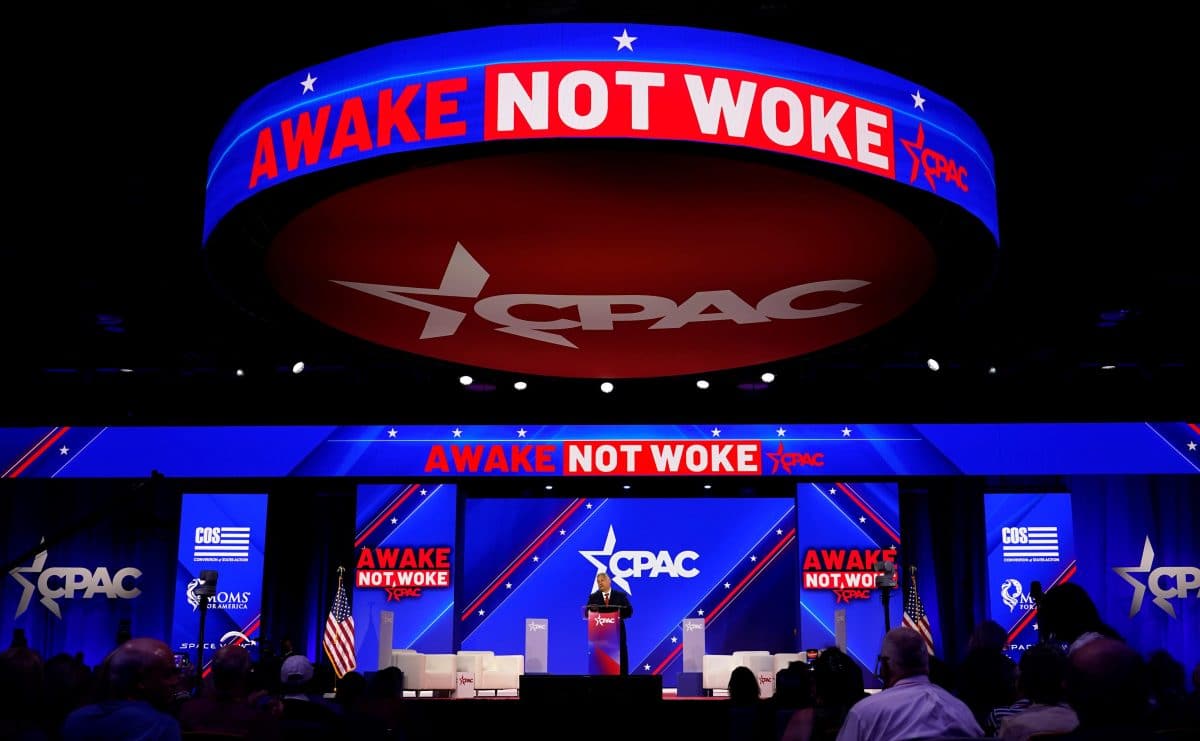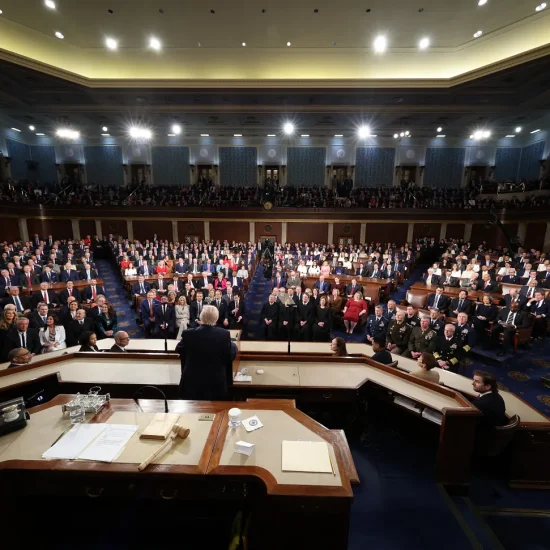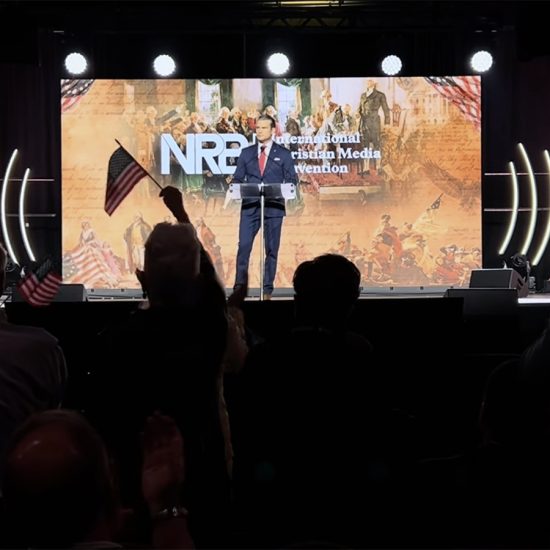
Inside the prison cell, U.S. Rep. Marjorie Taylor Greene of Georgia was on her knees in prayer. She held the hands of an incarcerated man clad in an orange jumpsuit and red MAGA hat. Supporters gathered around them, some weeping over the perceived injustice of the imprisonment. In an apparent belief that God would right this wrong, the crowd began to pray the Lord’s Prayer in unison.
The man behind the bars was intended to symbolize those incarcerated for their involvement in the Jan. 6, 2021, insurrection. The strange display of religious ritual and political theater described by Tess Owen for Vice (who experienced harassment from conference attendees for her reporting) unfolded at the Conservative Political Action Conference last week in Dallas, Texas.
The mock holding cell represented an alternative reality about the insurrection that is frequently promoted by Greene and others to claim those prosecuted for crimes committed that day are instead political prisoners and patriots. Indeed, the faux inmate at CPAC was Brandon Straka, who pleaded guilty to a misdemeanor offense for his role in the riot but avoided worse punishment because he cooperated with the FBI. A guilty man who got off easy showed up in Texas and brazenly presented himself as the exemplar of persecution.
All of this was too much for The Daily Show host Trevor Noah.
“Help me understand the logic here,” he implored his audience during a recent segment of the show. “Marjorie Taylor Greene is praying for a fake prisoner? This is a real thing, and she’s serious. Who is this lady? America, you understand this is a person who’s actually part of running your country? She’s in there mourning with a fake, praying for — like, how does she function in the world?”
Although we might roll our eyes at the stunt by Straka, Greene, and others, this type of performative politics can send a powerful message. And the incorporation of religious rituals adds a sacred veneer to this reinterpretation of events. Allegedly punished unfairly by humans, those facing punishment will find vindication from God. In this way, the sacredness of Christian prayer became just another prop for advancing an extreme political agenda.
 While the prison cell prayer meeting proved disturbing, it was far from the only time Christianity was invoked at CPAC. In prayers, speeches, and rituals, the conference legitimated its partisan visions with sacrilegious displays that contradicted core tenets of the Christian faith. So, in this edition of A Public Witness, we trace the evolution of CPAC. Then we examine the supposedly Christian practices and rhetoric that found expression deep in the heart of Texas, before testing the spirits of this witness.
While the prison cell prayer meeting proved disturbing, it was far from the only time Christianity was invoked at CPAC. In prayers, speeches, and rituals, the conference legitimated its partisan visions with sacrilegious displays that contradicted core tenets of the Christian faith. So, in this edition of A Public Witness, we trace the evolution of CPAC. Then we examine the supposedly Christian practices and rhetoric that found expression deep in the heart of Texas, before testing the spirits of this witness.
NOTE: The rest of this piece is only available to paid subscribers of the Word&Way e-newsletter A Public Witness. Subscribe today to read this essay and all previous issues, and receive future ones in your inbox.






